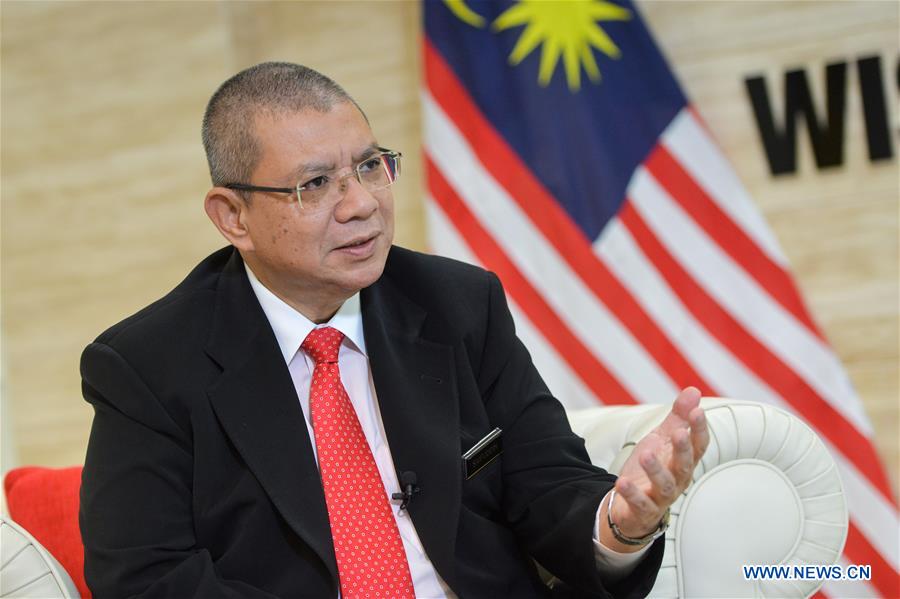
Malaysian Foreign Minister Saifuddin Abdullah speaks during an interview with Xinhua in Putrajaya, Malaysia, on June 13, 2019. (Xinhua/Chong Voon Chung)
China's pro-engagement approach in the Belt and Road Initiative offers countries like Malaysia more opportunities against the backdrop of the de-globalization trend, said Malaysian Foreign Minister Saifuddin Abdullah.
In an exclusive interview with Xinhua on Thursday, Saifuddin expressed concern over the trend of anti-globalization and protectionism. Problem arises when certain superpower wants to monopolize and wants the trade to be conducted only in a way that benefits itself, he said.
He said certain countries which had advocated free trade and globalization were now contradicting themselves by engaging in protectionism, which is not good for international trade.
Saifuddin said the East did not complain when it was trailing behind the West in technology and instead they worked hard to catch up and now it seemed certain countries were trying to subdue those moving forward instead of engaging in healthy competition.
"There was a time when Western technologies were more advanced and we didn't complain. What we did was we diligently studied, we learned, we innovated and we competed, and this is exactly what China was doing," he said.
Saifuddin pointed to the China-proposed Belt and Road Initiative (BRI) as an example of China's participatory approach towards other nations.
"This is not the way where most Western countries will do. More often than not, from the West you get an idea which is already done and they bring it to the East and they ask us to follow," he said.
"But what we learn from BRI, here is an idea, but you invite people to come and discuss and even small countries share the same table with big countries like China and this to me is an approach that is very important," he said.
Saifuddin, who accompanied Malaysian Prime Minister Mahathir Mohamad to attend the Second Belt and Road Forum for International Cooperation, cited the participatory nature of the BRI as the reason why Mahathir has reiterated support for the initiative, adding that Malaysia is seeing great opportunities from the BRI.
"Of course we are a small player but we want to be part of it," he said.
In 1974, Malaysia became the first among members of the Association of Southeast Asian Nations (ASEAN) to establish diplomatic relations with China, and the two countries recently celebrated the 45th anniversary of diplomatic relations.
For Saifuddin, Malaysia could continue to act as a bridge between China and the region.
"I think we can play our own role in trying to gather the momentum between ASEAN member states, so that we can relate better, we can engage better, we can trade better with China and there are many areas of corporation," he said.
The foreign minister also said close and cooperative ties between key players in the region would greatly benefit those wishing to engage in constructive dialogue, especially considering the Chinese edge in various technologies.
Commenting on the situation in the South China Sea, Saifuddin said ASEAN countries and China are working together to maintain peace and security in the sea, while the involvement of "superpowers from outside the region" is more worrying.
"Problem arises when people from outside the region wanting to have equal say of how things are done in the region," he said.
Share to Friends
